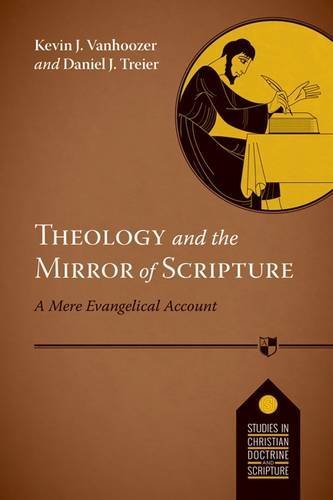What do you think?
Rate this book


Paperback
First published December 6, 2015
In an indelicately worded essay, Randal Rauser poignantly raises this concern, applying it to the work of Grenz and Franke among others (see "Theology as a Bull Session," in Crisp and Rea, Analytic Theology, pp. 70-84). If Rauser is right about what we must attempt, Rowan Williams nevertheless reminds us about the spirit of the attempt: "The continuing labour of adjustment to what is believed to be the context in which life continues shows its obedience to and seriousness about an abiding and mind-independent reality in its willingness to go on testing what is said—intellectually, spiritually, and in terms of practice in general—with confidence and courage. It is a courage that includes the willingness to say of this or that formulation, "This is our *181 best verbal "strategy" for responding to the current of God's action, and we may not be able to imagine any better; but we are not claiming that what is on offer is a simple descriptive summary.' Or, in slightly different terminology, exactly how such theological formulation refers is not something we can scrutinize; but the way in which the language operates, its points of strain or self-criticism, tells us that we cannot set aside the intention to refer, to tell a truth not reducible to an account of our own feeling or speculative play" ("Theology Among the Humanities," in The Vocation of Theology Today: A Festschrift for David Ford, ed. Tom Greggs, Rachel Muers and Simeon Zahl [Kugene, OR: Cascade, 2013], pp. 178-90, quoting p. 188).
John 17.22 I have given them the glory that you gave me,w that they may be one as we are one—23 I in them and you in me—so that they may be brought to complete unity. Then the world will know that you sent me and have loved them even as you have loved me.
Philippians 2.1 If you have any encouragement from being united with Christ, if any comfort from his love, if any fellowship with the Spirit, if any tenderness and compassion, 2 then make my joy complete by being like-minded, having the same love, being one in spirit and purpose. 3 Do nothing out of selfish ambition or vain conceit, but in humility consider others better than yourselves. 4 Each of you should look not only to your own interests, but also to the interests of others.
Ecclesiastes 1.9 What has been will be again, what has been done will be done again; there is nothing new under the sun. 10 Is there anything of which one can say, “Look! This is something new”? It was here already, long ago; it was here before our time. 11 There is no remembrance of men of old, and even those who are yet to come will not be remembered by those who follow.
Ecclesiastes 12.11 The words of the wise are like goads, their collected sayings like firmly embedded nails—given by one shepherd.b 12 Be warned, my son, of anything in addition to them. Of making many books there is no end, and much study wearies the body.